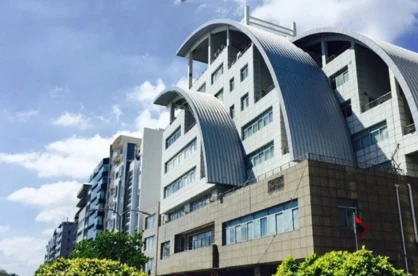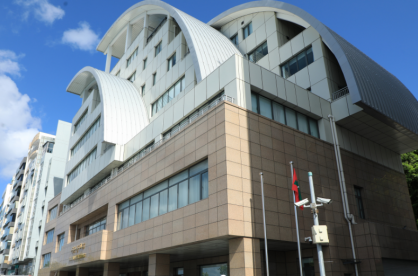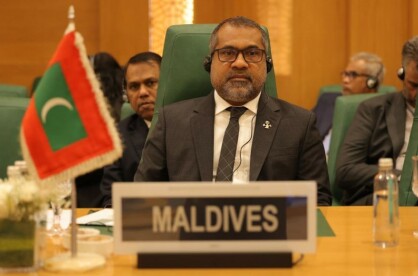The Maldivian government has proposed a 2025 budget of MVR 56.6 billion, with planned expenditures of MVR 49.2 billion, reflecting a determined shift towards fiscal stability and economic reform. This comes a year after Parliament made significant amendments to the 2024 budget, which initially stood at MVR 49.5 billion before being raised to MVR 52.8 billion through parliamentary revisions to better address pressing economic needs.
Although the proposed budget for 2025 is bigger compared to the previous year, the Government is aiming to manage its spending more tightly with this year’s budget, aligning budget priorities with a targeted agenda to restore debt sustainability and ensure that expenditures are directed toward economic growth and social welfare. As the Maldivian economy is still struggling with major challenges that continue to be addressed since the COVID-19 pandemic, such as the dollar shortage, this year’s budget incorporates new revenue measures, including increased tourism and airport taxes, as well as initiatives to stabilize the national dollar supply.
These actions which are included in the 2025 budget highlight the Government’s commitment to maintaining fiscal discipline and managing the country’s debt trajectory more effectively, contrasting with the previous year’s revisions aimed at immediate economic relief. The 2025 budget reflects a longer-term strategy to balance fiscal responsibility with sustainable development, which includes:
Revenue and Tax Adjustments
For 2025, the government anticipates generating MVR 39.8 billion from income and grants. To address ongoing foreign exchange shortages, several measures have been introduced to enhance dollar inflow. Key revenue policies include:
- Tax adjustments: The Tourism Goods and Services Tax (TGST), Green Tax, and Airport Tax and Fees will be increased to boost dollar-based revenue. The changes to the Green Tax Rates are set to be implemented by the Government starting in January of 2025, with the estimated revenue impact for the year 2025 standing at MVR 963.6 million. In addition to this, the increase in the TGST is estimated to bring in a revenue of MVR 201.9 million for the year 2025, with the changes in airport fees estimated revenue impact for the year 2025 to be a total of MVR 1,572.3 million.
- Dredging fee: A new fee for dredging services is set to be introduced, charged in US dollars to further stabilize the currency flow.
- Destination principle: The government will shift to this principle for tourism-related taxes, ensuring that taxes are levied where services are consumed. Some of the changes the Government has previously highlighted state that guesthouses or a hotel on an inhabited island with 50 or fewer registered rooms will see a change in rate from USD 3 to USD 6 and other types of establishments to see a change in rate from USD 6 to USD 12.
- Spectrum charges: A new radio frequency spectrum charge will be imposed.
- Import duties: Import duties will be raised, especially on products like cigarettes, to reduce the negative impact of harmful substances. In addition to these changes, the Government has also stated the intention to ban the importation and sale of vapes and vape-related goods within the Maldives as well. These measures highlight the steps that the administration is taking towards creating a healthier future for the current and coming generations.
In addition to these measures, the government plans to secure a cash grant of USD 120 million in 2025 to support budgetary commitments, aimed at easing the pressure on public finances and facilitating essential development projects. This grant will be instrumental in advancing priority areas such as infrastructure, healthcare, and social welfare programs, aligning with the broader goals of economic stability and growth.
Expenditure Priorities
The 2025 budget outlines several initiatives to improve public services and efficiency in government spending. Key expense allocations include:
- Direct cash transfers: The government will introduce a system for direct cash transfers to improve social welfare support.
- Healthcare reform: Comprehensive reforms are planned for the healthcare system to improve service quality. Currently, we are seeing some of the changes being implemented, such as the much-needed reforms to Aasandha, which will ease the amount being invested into the national health insurance scheme. Other similar measures are also underway to be implemented, which will see the cost of medication and ultimately the healthcare system being reduced.
- SOE reform: Efforts will continue to make State-Owned Enterprises (SOEs) more profitable and efficient. This is a reform that the Government has also been working on throughout 2024, which saw the merging of key enterprises to make SOEs more profitable.
- Housing initiatives: Increased investment in housing programs aims to make affordable housing more accessible to Maldivians. This initiative, although undertaken by several Governments prior, is becoming one of the main targets for the 2025 budget for the Maldives.
- Improving the education and healthcare system: The budget for 2025 will also play a key role in bringing necessary changes that will see major improvements in education as well as the healthcare system of the Maldives.
- Civil Service salaries: Civil service salaries will be increased as part of efforts to enhance public sector employment conditions.
Through these measures, the government aims to reduce the primary budget deficit to below 5% of GDP, achieving sustainable fiscal management. The budget proposed for 2025 reflects a strong focus on both development and social welfare improvements while setting a path toward long-term economic stability for the Maldives.







